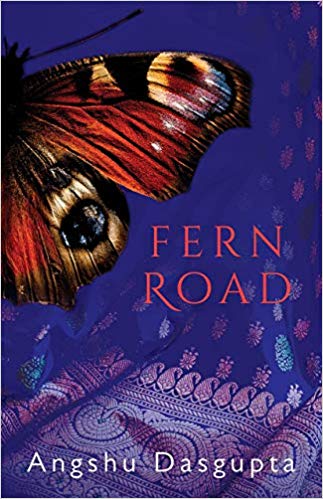“Fern Road” by Angshu Dasgupta

Angshu Dasgupta’s debut novel Fern Road is a coming-of-age novel set in 1980s’ Calcutta. It is a quietly paced, gently told story about Orko who lost his mother when he was very young. He as a very kind, loving, understanding father, a University professor, who also readily makes the time to be a single parent. Orku’s father makes a conscious decision to stay on in the official accommodation to fend for his son himself. He prefers the nuclear arrangement rather than take the easy option of moving back to his own father’s home relying upon the relatives to help bring up Orku. Yet, Orku misses his mother terribly and yearns to be like her. His desire to emulate his mother is not restricted to her personal traits but to the clothes and jewellery she would wear. It is only as he grows older and begins to experience bullying, social ostracisation and sexual abuse that he begins to introspect and realise that he is different to the majority of his peers. Despite their best efforts to belittle him, Orku after some emotional turmoil, begins to be more comfortable with who he is rather than be the butt of everyone’s taunts.
Fern Road is a pleasant enough read that apparently took the author more than five years to write. Portions of this story are emotionally draining to read, so must have been harder to write. Transiting from childhood to adulthood with the hormones going wild during adolescence is complicated enough but to be fraught with confusion about oneself as Orku is, is nerve-wracking. Setting this novel in the 1980s when conversations about LGBTQ issues were taboo is a brave act as it calls upon the writer to create a story that shuts out the present day narratives acknowledging LGBTQ communities. So to focus upon a story that was more than a grey area in social spaces and was deemed a criminal offence till recently in India must have been challenging. Having said that the dissonance between contemporary literature with its focus on LGBTQ lists and Fern Road are stark and impact one’s reading of the story considerably. While it is unfair to expect the author to write authoritatively a coming-of-age gay novel yet the characters could have been made a little more stronger. Same holds true for the incidents that impact Orku such as the rape by his football coach, the bullying by his peers, his concerned and protective aunt trying to tease out of him his worries and his friends ( inevitably girls) referring obliquely to his sexual orientation. While all of this may be true within the context of the novel and the period it is set in, it comes across as very tone deaf since LGBTQ novels of today have attained a very mature style of writing — there is a sensitive, nuanced understanding of the issues at stake and not necessarily refer to modern literature being more explicit . So while it is absolutely correct to acknowledge the politeness with its viciously violent underpinnings towards those who are different from heterosexual norms, it is perhaps equally correct to acknowledge the literary canon within which this novel will be placed. So the incidents considered for the plot could have tried pushing the limits of writing a bit more without making it sound absurdly out of context. Readers will expect a little more. A nuanced recognition at most of current trends of writing, especially in the LGBTQ YAlit space, rather than sticking to telling an old-fashioned story of 1980s Calcutta. For now, in all likelihood, the story will sink rather than stand out as that of a new voice.
Perhaps with his second novel, which is more often than not the litmus test for new writers, will be the confident note that Angshu Dasgupta will achieve. Till then read Fern Road.
15 February 2020
